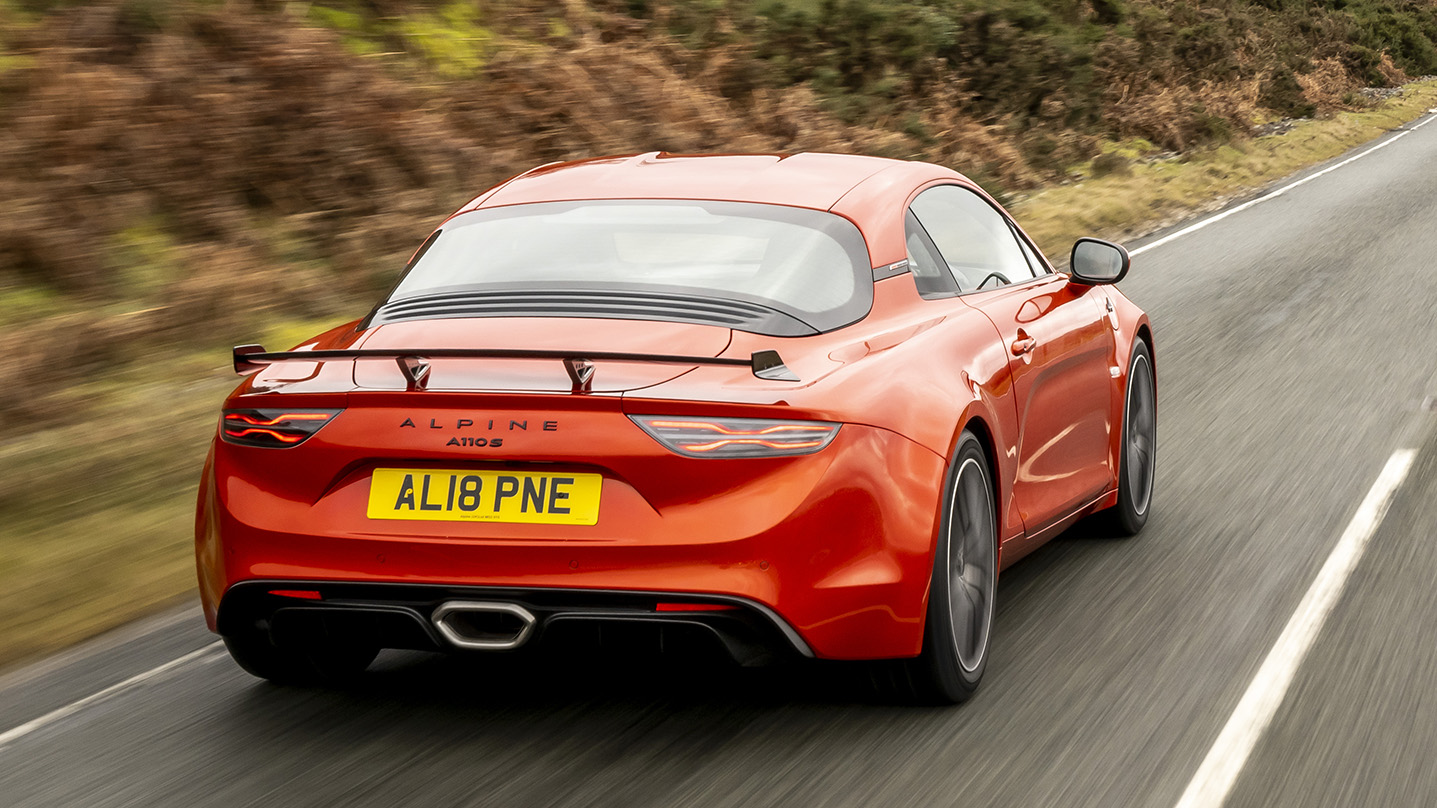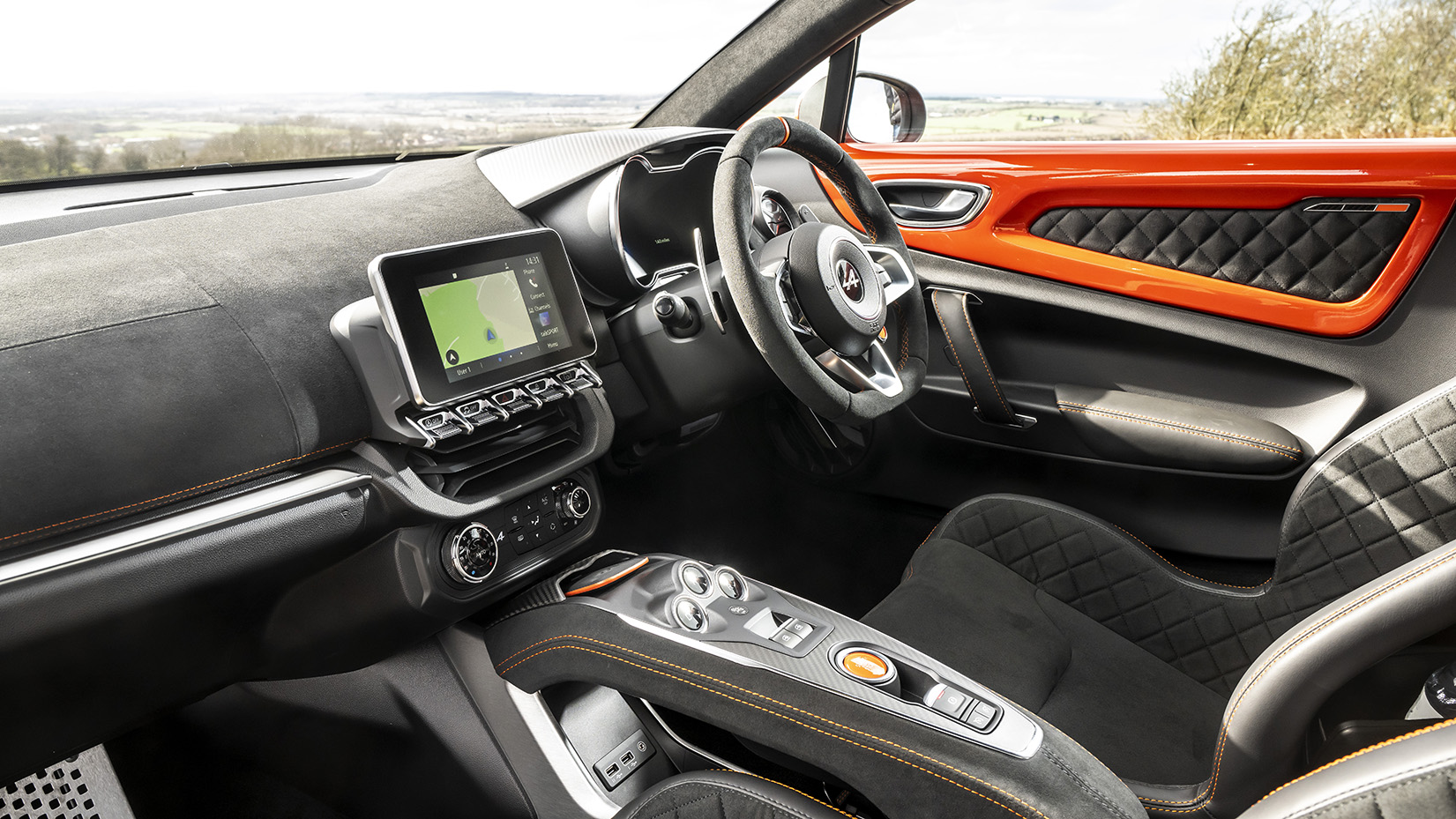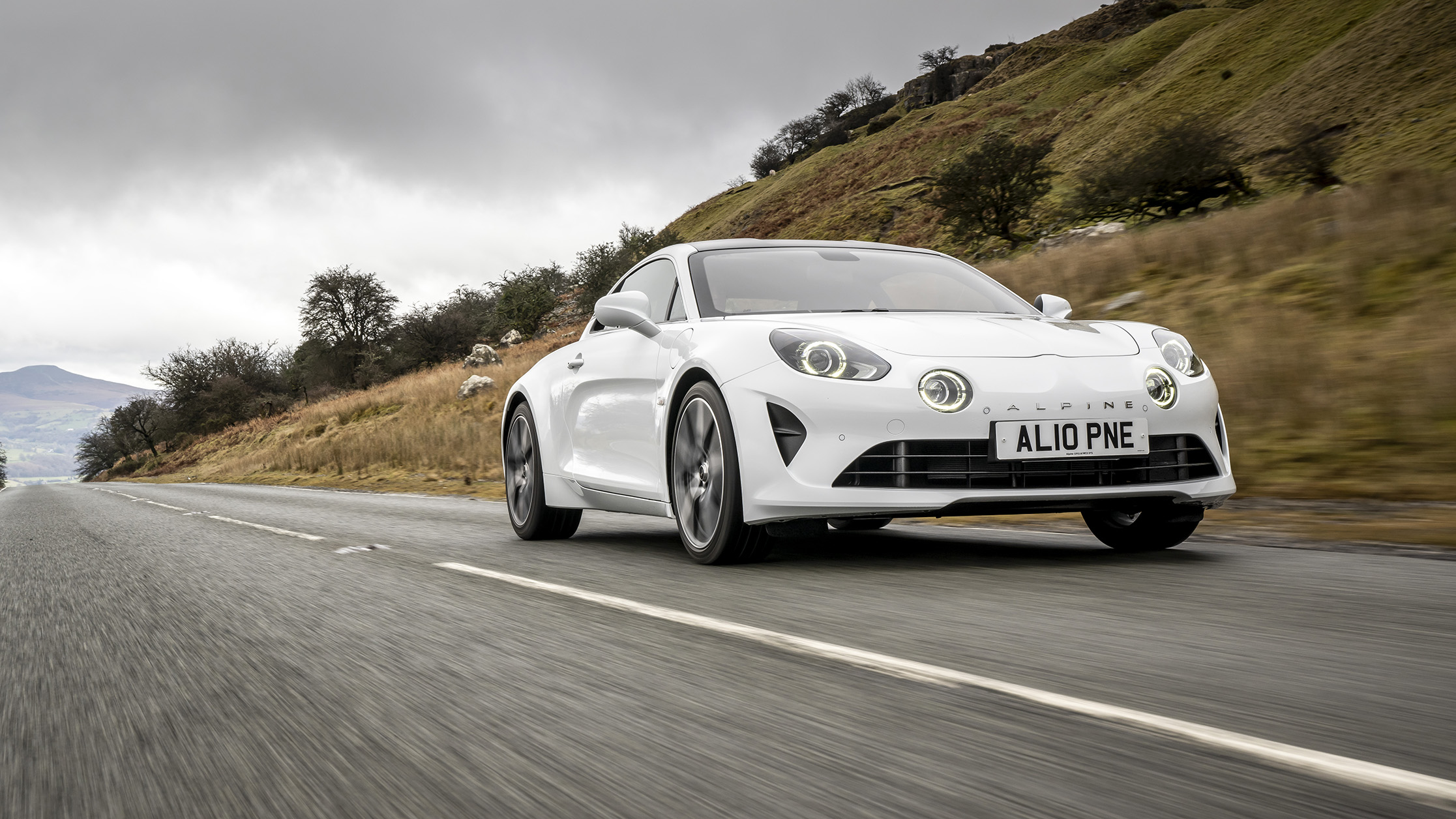
Interior
What is it like on the inside?
First thing's first: the A110 is small. Under 4.2 metres long and 1.8 metres wide, it’s a strict two-seater and not that practical. Like a Cayman, it has boots front and back, but the 100-litre front is shallow (you can just about get a couple of airline carry-on bags side-by-side in there), and the 96-litre rear, accessed through a lid the size of a flip-top bin, isn’t going to carry golf sticks (that may be a good thing).
It’s not small inside though, because Alpine's managing director when the A110 was being developed, Michael van der Sande, is six foot six, so he made sure he’d be able to fit. Gordon Murray has one as his daily.
Does it feel expensive?
The design is lovely, but what lets the ‘base-spec’ A110 Pure down – only slightly – is the quality and materials. They’re not bad, but the door card below the lovely body-coloured panel is black and scratchy, the steering wheel is slightly bulbous (and isn’t the boss slightly offset?) and though the touchscreen is no longer a parts-bin Suzuki Jimny item and now has a native Renault interface with proper Apple and Android mirroring, it's still not as slick as what's found in key rivals. Or what we've seen in the Lotus Emira, for that matter.
Speaking of the Lotus, it's also notable how the British car uses parts-bin Volvo switchgear, which feels expensive. The Alpine is full of Renault bits, which do not. It's only minor stuff like the climate control knobs and mirror adjuster, but when this car can now be specced to nearly £90,000, attention to detail matters.
But as a car to drive, the A110’s interior sets the tone very nicely indeed. The fixed Sabelt seats (optional in the A110, standard in the S) not only look superb, but are superbly shaped. You sit low (if you can be bothered to get an Allen key out and set the seats correctly), and rear visibility through the narrow slot isn’t great, but because the car is small, the driving position good, the controls well weighted and accurate, you have confidence on narrow roads. It’s a gap-slipper par excellence.
Any other detail niggles?
Slightly longer paddleshifters on the steering column would be much appreciated, though. They're stunted so they don't foul an ancient Renault volume/track-seek stalk...
The centre console bridge features a pouch for your phone as well as the Drive/Reverse buttons and USB socket, there’s storage on the level underneath (it’s not that easy to access down the side of the seat, mind you), plus a brace plate for the passenger.
If more luxury is required, the GT trim brings supremely comfortable, expensive-smelling leather upholstery and a dashboard where matt grey carbon fibre trim has been swapped out for gloss-finish panels flecked with coppery inserts. Fancy. And a bit reflect-y in bright sunlight. D'oh.
Meanwhile in the R, you get super-supportive, deep one-piece carbon fibre bucket seats with just a tissue-thin layer of padding. Somehow, they're comfortable enough. It also has six-point harnesses, which you have to use. That's because additional inertia-reel belts – common in road/track cars – have been lobbed out to save weight. But it retains air-con and the infotainment system, and a rear-view camera. It has track apps too.
Featured

Trending this week
- Car Review
BMW iX3






